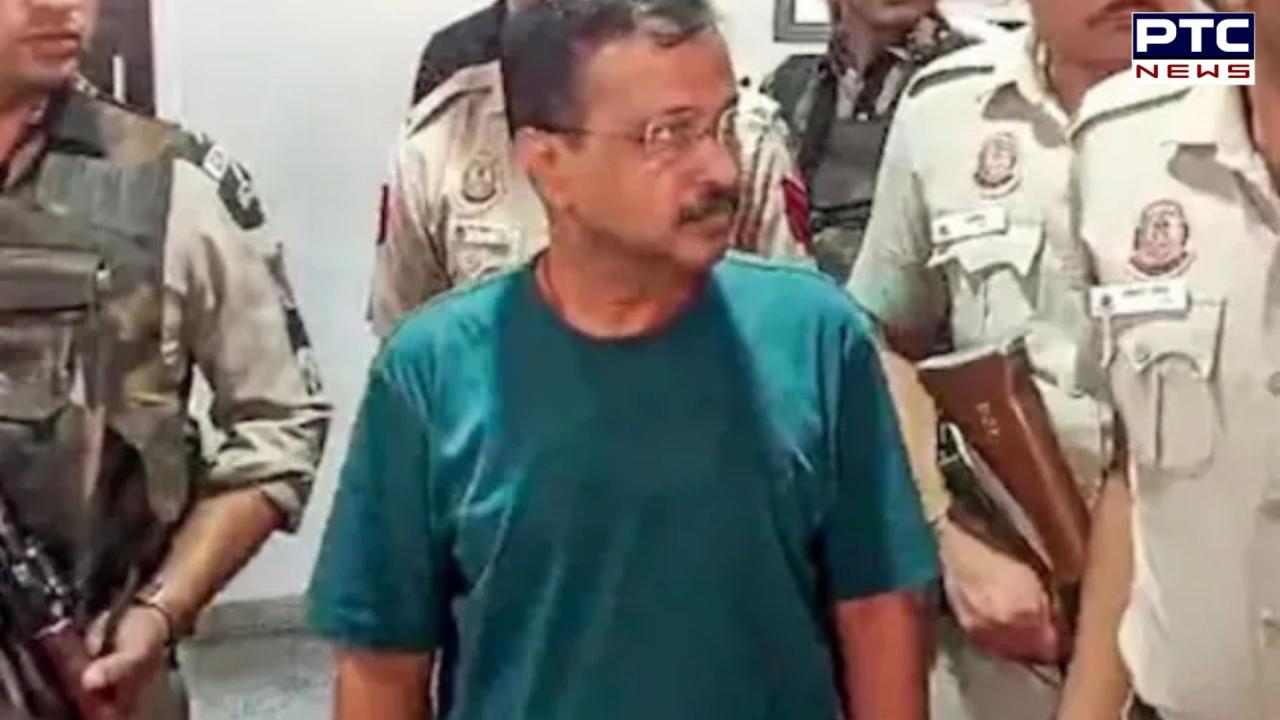

Supreme Court to decide today: Bail or jail for Arvind Kejriwal?
PTC News Desk: The Supreme Court is set to deliver a crucial decision today on whether Delhi Chief Minister Arvind Kejriwal will be granted bail in the alleged liquor excise policy scam. Kejriwal, who was arrested by the Central Bureau of Investigation (CBI) in June following a probe into the controversial policy, has been in custody for nearly six months.
If the court rules in his favor, Kejriwal will finally walk free after being first arrested by the Enforcement Directorate (ED). While he was granted bail by the Supreme Court in the ED case in July, his release was delayed due to his subsequent arrest by the CBI just weeks earlier in connection with the same case. His legal team, led by senior advocate Abhishek Singhvi, has argued that this second arrest was an attempt to keep Kejriwal behind bars and maintain pressure on his Aam Aadmi Party (AAP) ahead of the February Delhi elections.
In his arguments before the Supreme Court, Singhvi pointed out that Kejriwal had already passed the 'triple test' for bail and emphasized that the arrest by the CBI was unnecessary given that the ED had already dropped its challenge.
Despite these arguments, the CBI has consistently pointed to a significant amount of evidence against the Delhi Chief Minister, much of which comes from testimony provided by ‘approvers’—former accused who have been pardoned in exchange for their cooperation against Kejriwal.
The charges relate to Kejriwal’s alleged role in formulating and approving the liquor excise policy in November 2021, which was scrapped eight months later following growing controversy. The CBI believes that the policy was manipulated to favor certain business groups in exchange for kickbacks.
Despite the CBI’s insistence on Kejriwal's role in the scam, the Supreme Court has raised concerns over the use of ‘approvers’ in these cases. In an earlier ruling involving Telangana politician K Kavitha, another accused in the same case, the court questioned the fairness of relying on witnesses who incriminate themselves for reduced sentences.
Also Read: Mamata Banerjee offers to resign amid escalating stand-off with doctors
The Supreme Court has consistently emphasized the principle that “bail is the rule, jail is the exception,” a principle first laid down in 1977 and reinforced in cases involving the Prevention of Money Laundering Act (PMLA), under which Kejriwal faces charges.
If granted bail, Kejriwal will join a growing list of high-profile politicians released in connection with the liquor scam, including his former deputy Manish Sisodia, AAP Rajya Sabha MP Sanjay Singh, BRS leader K Kavitha, and AAP leader Durgesh Pathak. The Supreme Court has previously expressed concern over the prolonged detention of accused persons without trial, calling it a violation of the right to liberty, as it did in Sisodia’s case, describing his continued detention as a “travesty of justice.”
The Delhi liquor policy case has serious political implications. Authorities have accused Kejriwal and the AAP of accepting Rs 100 crore in kickbacks from a group led by BRS leader Kavitha in exchange for liquor licenses. The ED and CBI claim this money was funneled into election campaigns, including the 2022 Goa Assembly elections.
Both Kejriwal and Kavitha have vehemently denied the allegations, accusing the ruling Bharatiya Janata Party (BJP) of using federal agencies like the ED and CBI to target opposition leaders and weaken critics ahead of key elections.
As the Supreme Court prepares to deliver its verdict, the political landscape remains charged, with Kejriwal's future and the credibility of his party hanging in the balance.
Also Read: Adani Group denies Hindenburg's allegation of $310 mn Swiss Bank funds freeze
- With inputs from agencies
